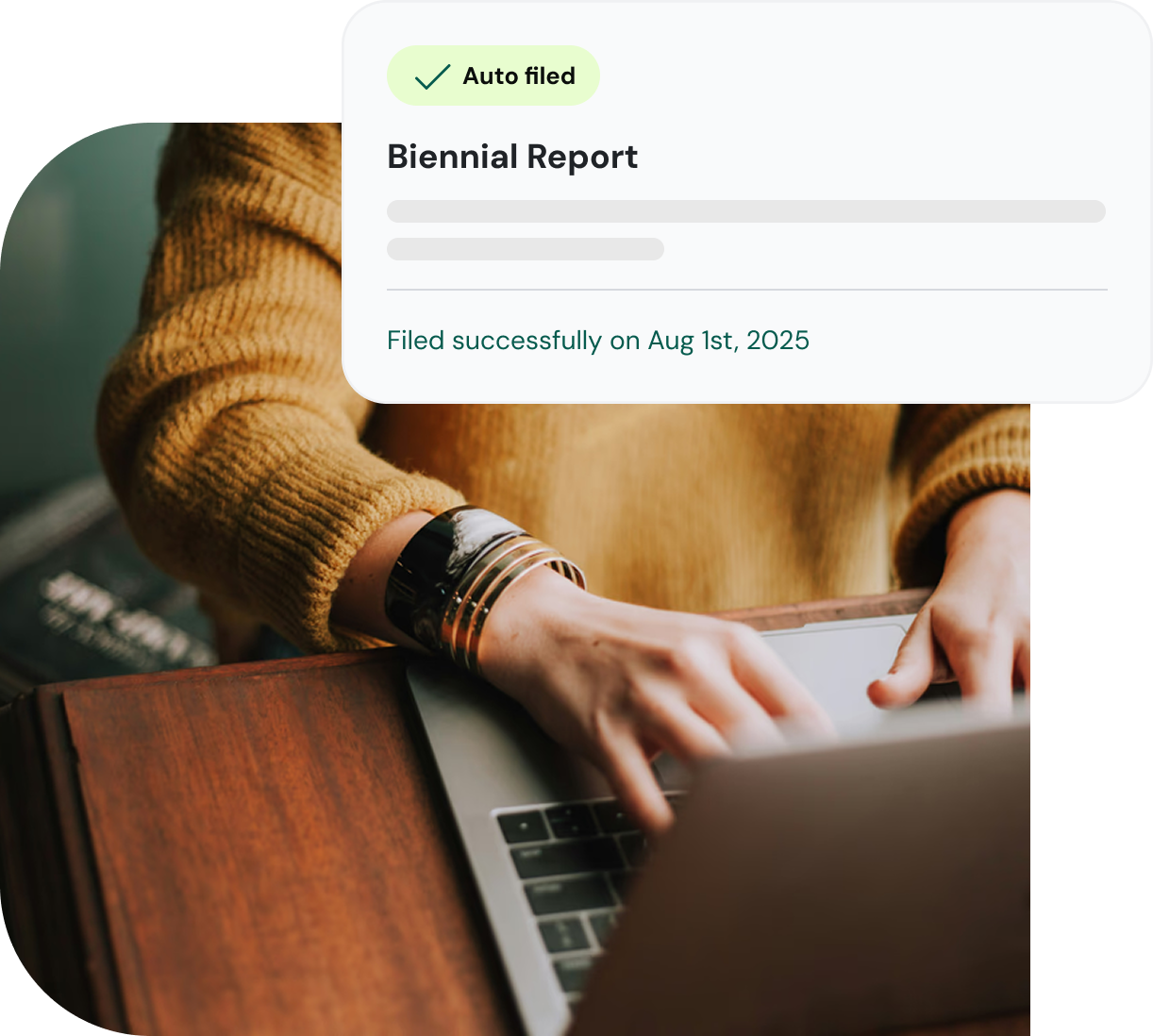How to File a New Hampshire Annual Report: Complete Compliance Guide


- Corporations, LLCs, and LLPs – Must file an annual report and pay the filing fee.
- Domestic entities: Reports are due April 1 each year.
- The filing window opens January 1, giving businesses three months to prepare and submit.
- Reports are first due the year after registration.
- Legal Name or Entity ID – As recorded with the New Hampshire Secretary of State
- Registered Agent Information – Must include a physical address in New Hampshire (P.O. Boxes are not accepted)
- Principal Office Address – Can be anywhere in the United States; if different, include mailing address as well
- Officer/Member/Partner Details – Names, titles, and addresses of all current officers, members, or partners
Filing Deadlines & Due Dates
Entity Type
Filing Frequency
Opens
Deadline
Penalties Start After
Corporation / LLC / LLP
Annual Report
Jan 1
April 1
April 2
previous year file their first report in the year
following registration.
ensures you won’t risk late fees or system
delays close to the deadline.
- Annual Report Filing Fee: $100
- Online Processing Fee: $2
- Late Fee: $50 (applies immediately after April 1)
- Total Due if Late: $152




with the first report due the
year after formation.
results in a late fee and can escalate to more
serious penalties if not resolved quickly.
Step-by-Step Filing Process
Step 1
Gather Required Information –
Collect your Entity ID, registered agent
information, and officer/member
details.
Step 3
Pay and Submit – Submit your
$100 filing fee online (plus $2
processing fee).





%201.47.16%20p.m..png)
Step 2
Access the Filing Portal – File
online through the New Hampshire
Secretary of State’s QuickStart
dashboard.
Step 4
Save Confirmation – Download
or print your receipt as proof of
both filing and payment.
Step 1
Gather Required Information – Collect your Entity ID, registered agent information, and officer/member details.

Step 2
Access the Filing Portal – File online through the New Hampshire Secretary of State’s QuickStart dashboard.

Step 3
Pay and Submit – Submit your $100 filing fee online (plus $2 processing fee).

Step 4
Save Confirmation – Download or print your receipt as proof of both filing and payment.




ensure your report is processed before the April 1
deadline.




- All are required to file an annual report by April 1 each year.
- Reports must include updated officer/member/partner information and current registered agent details.
- Late Fee: $50, applied immediately on April 2.
- Loss of Good Standing: Can make it harder to obtain financing, enter into contracts, or renew licenses.
- Administrative Dissolution: May occur if reports remain delinquent, leaving your entity legally inactive.
- Banking Restrictions – Lenders may refuse loans or freeze business accounts.
- Contract Issues – Many vendors require proof of good standing for agreements.
- Licensing Challenges – Your business may be ineligible for state or local licenses and permits.








- Entity-Specific Expertise – We file annual reports for corporations, LLCs, and LLPs.
- Automated Deadline Tracking – We monitor the April 1 deadline to keep you compliant.
- Full Compliance Support – From preparation to submission, Palm provides ongoing support to safeguard your business standing.
When is the New Hampshire Annual Report due?

April 1 each year. Filing opens January 1.
How much does it cost to file?

$100 filing fee plus a $2 online processing fee.
What happens if I don’t file?

You will incur a $50 late fee, lose good standing, and risk administrative dissolution.
Can I file online?

Yes. Reports are filed online via the Secretary of State’s QuickStart dashboard.
Ready to File Your
New Hampshire Annual Report?
Palm makes it easy to stay compliant with deadline tracking, professional filing services, and year-round compliance support tailored to your entity type.
File Your New Hampshire Annual Report Now